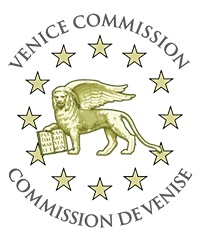Related Research Articles

Democracy is a system of government in which state power is vested in the people or the general population of a state. According to the United Nations, democracy "provides an environment that respects human rights and fundamental freedoms, and in which the freely expressed will of people is exercised."

Human rights are moral principles or norms for certain standards of human behaviour and are regularly protected in municipal and international law. They are commonly understood as inalienable, fundamental rights "to which a person is inherently entitled simply because she or he is a human being" and which are "inherent in all human beings", regardless of their age, ethnic origin, location, language, religion, ethnicity, or any other status. They are applicable everywhere and at every time in the sense of being universal, and they are egalitarian in the sense of being the same for everyone. They are regarded as requiring empathy and the rule of law and imposing an obligation on persons to respect the human rights of others, and it is generally considered that they should not be taken away except as a result of due process based on specific circumstances.
Hate speech is a legal term with varied meaning. It has no single, consistent definition. It is defined by the Cambridge Dictionary as "public speech that expresses hate or encourages violence towards a person or group based on something such as race, religion, sex, or sexual orientation". The Encyclopedia of the American Constitution states that hate speech is "usually thought to include communications of animosity or disparagement of an individual or a group on account of a group characteristic such as race, color, national origin, sex, disability, religion, or sexual orientation". There is no single definition of what constitutes "hate" or "disparagement". Legal definitions of hate speech vary from country to country.

Sharia is a body of religious law that forms a part of the Islamic tradition. It is derived from the religious precepts of Islam and is based on scriptures of Islam, particularly the Quran and the Hadith. In Arabic, the term sharīʿah refers to God's immutable divine law and is contrasted with fiqh, which refers to its human scholarly interpretations. Over time, legal schools have emerged, reflecting the preferences of particular societies and governments, as well as Islamic scholars or imams through their work on the theoretical (usul) and practical application (füru'/Fatwa) of laws and regulations. However, sharia has never been the sole valid legal system in Islam, and has always been used alongside urf from the beginning. Although sharia is presented as a form of government in addition to its other aspects, especially by the contemporary Islamist understanding, some researchers see the early history of Islam, which was also modelled and exalted by most Muslims; not a period when the understanding of sharia was dominant, but a kind of "secular Arabic expansion".

The European Court of Human Rights, also known as the Strasbourg Court, is an international court of the Council of Europe which interprets the European Convention on Human Rights. The court hears applications alleging that a contracting state has breached one or more of the human rights enumerated in the convention or its optional protocols to which a member state is a party. The European Convention on Human Rights is also referred to by the initials "ECHR". The court is based in Strasbourg, France.
Deliberative democracy or discursive democracy is a form of democracy in which deliberation is central to decision-making. Deliberative democracy seeks quality over quantity by limiting decision-makers to a smaller but more representative sample of the population that is given the time and resources to focus on one issue.
The international community is a term used in geopolitics and international relations to refer to a broad group of people and governments of the world.
Legality, in respect of an act, agreement, or contract is the state of being consistent with the law or of being lawful or unlawful in a given jurisdiction, and the construct of power.

The Venice Commission, officially European Commission for Democracy through Law, is an advisory body of the Council of Europe, composed of independent experts in the field of constitutional law. It was created in 1990 after the fall of the Berlin Wall, at a time of urgent need for constitutional assistance in Central and Eastern Europe.

The question of whether the governance of the European Union (EU) lacks democratic legitimacy has been debated since the time of the European Economic Community in the late 1970s. This led in part to an elected European Parliament being created in 1979 and given the power to approve or reject EU legislation. Since then, usage of the term has broadened to describe newer issues facing the European Union. Voter turnout at the elections to the European Parliament fell consecutively at every election from the first in 1979 up to 2014 when it hit a low of 42.54%, before finally rising in 2019. The 2014 turnout figure is lower than that of any national election in the 27 countries of the European Union, where turnout at national elections averages 68% across the EU.
International law is the set of rules, norms, and standards generally recognized as binding between states. It establishes norms for states across a broad range of domains, including war and diplomacy, economic relations, and human rights. International law differs from state-based domestic legal systems in primarily, though not exclusively, applicable to states, rather than to individuals, and operates largely through consent, since there is no universally accepted authority to enforce it upon sovereign states. States may choose to not abide by international law, and even to breach a treaty but such violations, particularly of peremptory norms, can be met with disapproval by others and in some cases coercive action ranging from diplomatic and economic sanctions to war.
Tănase v. Moldova was a 2010 European Court of Human Rights case which determined that the provisions of the European Convention on Human Rights prohibited Moldova from making dual cititzenship holders ineligible to sit in the national parliament.
Constitutionalism is "a compound of ideas, attitudes, and patterns of behavior elaborating the principle that the authority of government derives from and is limited by a body of fundamental law".

Fiona de Londras is an Irish academic and the Professor of Global Legal Studies at the University of Birmingham, UK. From 2019 to 2022, she was also an honorary professor at the Australian National University in Canberra.

Strategic litigation, also known as impact litigation, is the practice of bringing lawsuits intended to effect societal change. Impact litigation cases may be class action lawsuits or individual claims with broader significance, and may rely on statutory law arguments or on constitutional claims. Such litigation has been widely and successfully used to influence public policy, especially by left-leaning groups, and often attracts significant media attention. One prominent instance of this practice is Brown v. Board of Education.
Ed Bates is a scholar of human rights and international law at the University of Southampton.
The living instrument doctrine is a method of judicial interpretation developed and used by the European Court of Human Rights to interpret the European Convention on Human Rights in light of present-day conditions. The doctrine was first articulated in Tyrer v. United Kingdom (1978), and has led both to different rulings on certain issues as well as evaluating the human rights implications of new technologies.
Azerbaijan has been a member of the Council of Europe, an international organization that focuses on strengthening democracy and human rights, since 2001. As a member, it has attracted attention for holding political prisoners, low implementation of verdicts of the European Court of Human Rights (ECtHR), and bribing Council of Europe parliamentarians to suppress negative information about its human rights record. In 2017, the Committee of Ministers launched the first ever infringement proceeding against Azerbaijan after it refused to release opposition politician Ilgar Mammadov after a 2014 ECtHR verdict that his imprisonment was unlawful. There has also been criticism of Azerbaijan's continued membership by those who believe its lack of human rights protection undermines the credibility of the Council of Europe.
Strasbourg Observers is an academic blog published in English, which focuses on recent developments relating to the European Court of Human Rights (ECtHR). The blog was established by Eva Brems together with her Ph.D. researchers from Ghent University, Belgium, in April 2010. Since 2021, the blog is maintained by researchers based at the Human Rights Centre of Ghent University and at the Centre for Government and Law of Hasselt University. Posts published in the blog have been cited several times in the separate opinions of the Court.

Micronations and the Search for Sovereignty is a 2021 book by Australian constitutional law specialists Harry Hobbs and George Williams about micronations and their legal status. Written from an academic perspective, it is one of few works on micronational movements and the earliest-published book to focus largely on the legal aspect of micronations. The book concerns the definition of statehood, the place of micronations within international law, people's motivations for declaring them, the micronational community and the ways by which such entities mimic sovereign states. In 2022 Hobbs and Williams published a book for a broader audience, How to Rule Your Own Country: The Weird and Wonderful World of Micronations.
References
- ↑ "Kanstantsin Dzehtsiarou - University of Liverpool". www.liverpool.ac.uk. Retrieved 28 September 2021.
- ↑ Tzevelekos, Vassilis; Kapotas, Panos (2016). "Book Review: European Consensus and the Legitimacy of the European Court of Human Rights, by Kanstantsin Dzehtsiarou. (Cambridge: Cambridge University Press, 2015)". Common Market Law Review. 53 (4).
- ↑ Lock, Tobias (2015). "Kanstantsin Dzehtsiarou, European Consensus and the Legitimacy of the European Court of Human Rights". Human Rights Law Review: ngv034. doi:10.1093/hrlr/ngv034.